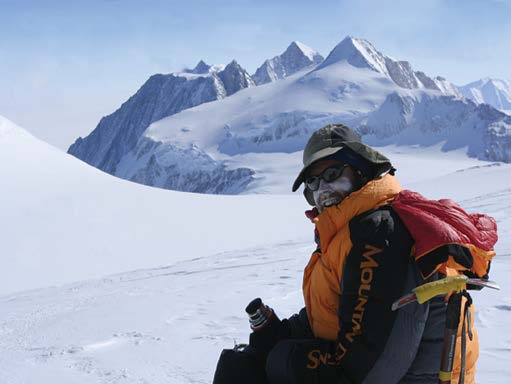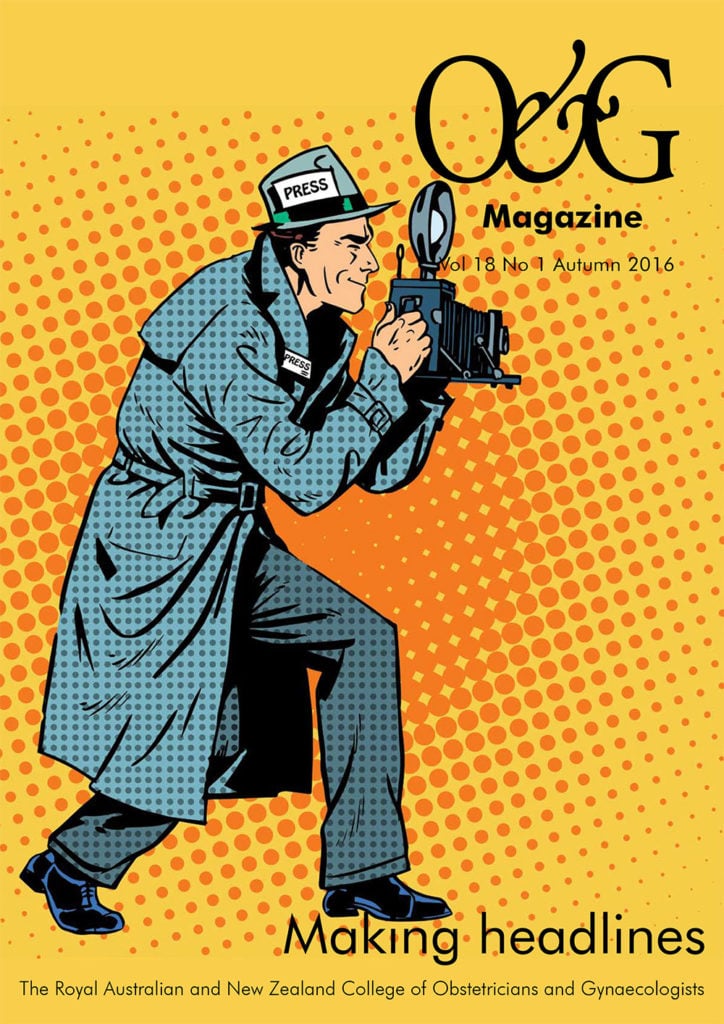Based on the principle ‘if you can’t get one, you need to make it yourself’, the Provincial Fellows Committee decided to go into the training business; and thus the Provincial Core Training pathway was created.
As provincial specialists, we have a problem: we are getting older, fewer and wanting to slow down or stop practising. How can we find replacements willing to take on the rigours of provincial practice: the call, the relative isolation, the relative lack of resources, the difficulties of keeping up to date and the logistics of finding someone to cover for leave? Collectively, we had addressed some of these problems with initiatives such as SOLS (subsequently ROALS), but getting our city-trained and city-based colleagues to look over the mountains or along the coastline when seeking a position to practice wasn’t happening, despite schools of rural health, compulsory rural rotation in training and some practice incentives. Was there another way?
The initiative
The idea of rural-based training came from the mind of A/Prof Ian Pettigrew. He had undertaken the original negotiations with Training and Accreditation committee (TAC) to include a rural rotation in RANZCOG’s ITP training. His first proposal was for a 12-month rotation, but the committee decided on six-month rotations. It was his belief that some provincial sites could be not only suitable for core training as a rotation, but also could act as the centre of an ITP.
In late 2012, Prof Michael Permezel, who was then in the early days of his first term as President of the College, visited Dubbo to discuss with me, then the newly appointed Chair of the Provincial Fellows Committee, the possibility of establishing a rural training scheme. The day was spent discussing the various aspects of such a program and, following these talks, he suggested a representation be made to the RANZCOG Board on the matter.
After consideration of the issues and discussion with colleagues, a proposal for a provincially based training scheme was formulated. In essence, the primary site for training would be a large provincial centre with sufficient clinical activity, consultant presence, experience in registrar training and an association with a school of rural health to cover most of the essential components of training. Coupled with this would be an attachment to a tertiary centre to gain the specialised exposure that only these sites can now provide, especially in such areas as maternal-fetal medicine and oncology. It was clear that such a site could not reasonably accommodate a new Trainee each year and the solution to this was to partner with another provincial site with the capabilities as described. The two sites would preferably be close in distance and cooperate in the training of registrars at both sites. Having both sites in the same health district would also be helpful, especially for funding purposes.
The response from the RANZCOG Board was to recommend the establishment of a working party to look into this matter as well as other aspects of the rural obstetrics and gynaecology workforce. The working party was duly organised with the terms of reference along these lines. From an early meeting it was decided to progress the matter of a rural ITP by granting a pilot project to Dubbo Base Hospital (DBH).
The program
At the time of the proposal to go ahead with the pilot, DBH had been a rural training site for 16 years and was considered to have sufficient expertise in training, sufficient clinical activity and had been re-accredited for both Core and Advanced training for a further three years.
What was required was a program that maximised the training time at the primary site, in this case DBH, didn’t dilute the workload (and hence clinical opportunities to any great degree), and which gave exposure to high-level services in a tertiary centre for a sufficient period during training. The program set out the first two training years at DBH rotating in the third year to Westmead Hospital (WMH) and finishing the fourth year back at DBH.
Another provincial site (Orange was the obvious choice) would take on a Trainee the next year of the program, following the same pattern. This would mean that there would be only one provincial ITP registrar rotating to WMH in any given year and that in the fourth year of training no WMH registrars would rotate to DBH, but could rotate to Orange. This allowed for a prolonged lag phase to be able to make adjustments to rural rotations for WMH registrars.
The preparation
Preparation for this pilot required the cooperation of a wide range of people and organisations. Firstly, the consultant staff at DBH needed to be comfortable taking on another Trainee, especially at such a formative stage of training. All agreed that the ultimate payoff would be worth the initial extra work involved.
Other associated craft groups, such as midwifes and paediatricians, were consulted and were agreeable to the plan. The hospital administration were also consulted and more than supportive of the proposal, especially as NSW Health and the health minister are both in favour of maximising rural training possibilities.
The specialists at Orange Base Hospital (OBH) were consulted regarding their willingness to partner with DBH in this venture and were enthusiastic in their support. As both hospitals are in the Western NSW Local Health District (LHD) administrative matters, such as funding, could be better coordinated. The CEO and Director of Medical Services were consulted and found to be supportive of the program.
Westmead Hospital in Sydney had been rotating registrars to DBH since 1997. They were approached through the training supervisor and head of department to be a part of the pilot. Some adjustments to their recruitment and rostering were required, but there was a willingness to be involved and when the final application for approval for the ITP was prepared for consideration by TAC, a comprehensive program and timetable were drawn up by them.
The selection process
What this training scheme needed in a Trainee was the commitment to rural practice. The attributes which were favoured in the selection process include having a rural background, being raised and educated in the country, having spent time in a rural centre as an undergraduate and hence somewhat familiar with rural life and practice, but most particularly someone who had postgraduate experience in a rural practice as a GP.
Applications were made through the usual College process, but with ancillary questions pertaining to the candidate’s willingness to undertake rural training included in the application and those interested encouraged to apply.
In the first year (2014), the selection interviews were undertaken separately from the national selection process (several weeks before) and different interview questions used. There were 12 applications and five applicants were interviewed. Interviewees were given to understand that if offered the position, to decline would eliminate them from eligibility for an alternative position in the national allocation of posts, but those who were unsuccessful could still be interviewed in that process.
In 2015, the procedure was changed to have the interviews on the day of national interviews by the same panel, with two extra questions regarding rural practice. Unsuccessful candidates were ordered in the national ranking by their scores at interview, less the scores for the extra questions. This has streamlined the selection without compromising its intent.
The Trainee
The first Trainee on the program is Dr Robert North: he is likely to be the only future specialist obstetrician-gynaecologist to have been born in the old maternity unit at DBH. Robert was educated in Dubbo and is a graduate of Newcastle University medical school. He has a background in rural general practice. Robert was the after dinner speaker at the recent Provincial Fellows ASM, regaling us with his adventures climbing Everest and trekking through Antarctica.

Dr Robert North, with the slopes of Everest in the background.
The result
After the first year of the program, it is difficult to evaluate its success. However, the indications are positive. Robert has gained extensive clinical experience over the 12 months, easily comparable to metropolitan Trainees and, in some instances (such as operative gynaecology), possibly in excess of them. The staff members within the maternity unit have recognised their increased obligations to the education of Trainees. Moreover, the desire to be a training institute, in addition to a service provider, has been embraced.
Robert has had his research project protocol (‘Predicting the time of onset of labour at term using fetal fibronectin’) accepted by both College and the Western NSW LHD Human Research Ethics Committee. He was asked to develop a project the outcomes of which will provide major benefit to women in rural Australia, and he has done this. Data collection began in early 2016. He has been supported in this by the Dubbo School of Rural Health and they in turn have been enthused by the developing of a research culture within our department.
A Trainee was appointed to OBH for 2016. The consultant members of staff there are keen to develop a regionally based training schedule involving both Orange and Dubbo to enhance the training opportunities of all of our registrars using all the resources available to us.
There has been some interest from other rural centres in the program but to date, there have been no further applications to the College to be a provincial ITP site. Maybe they are waiting to see how we go in central western NSW. I hope they don’t wait too long; there may not be too many trainers left if they do.
Dr Robert North
FRANZCOG Trainee
My first year as the first RANZCOG Provincial Trainee is complete. How has it been? I have certainly enjoyed the work, I have learned a lot and I’m definitely a lot further ahead in the specialty than I was a year ago. My first year in Dubbo has also coincided with the opening of the new maternity unit. I don’t remember the opening of the old unit. I was in Dubbo then, but only just, having been one of the last babies born in the unit before that one.
Having grown up and being educated here made it easy to come back and quickly settle in. Going back to being a junior registrar again has had its challenges, having been a VMO GP obstetrician and used to practising independently. This experience, however, certainly helped in this first year. I was used to acute medicine and clinical decision-making, so being the only doctor working in the labour ward needed only minor adjustment. The on-call consultant is not usually in the hospital, but has always been available when I’ve needed advice or assistance.
Initially, in doing procedural obstetrics, my confidence took a hit. I was critiqued and my bad habits were corrected. With practice, my skills and confidence quickly recovered and surpassed where I was when I started the year. That is exactly what I had hoped for. The overall experience has been positive. I have easily completed the requirements for the first year and made progress into the second-year assessments. I have been able to develop my research project and have it approved by College and the local HREC and have commenced data collection.
However, the department is far less busy than a tertiary hospital delivery suite. I believe that the level of experience gained from a ten-hour shift in a tertiary labour ward would require two or three days on call in a provincial hospital such as ours.
This situation aside, the other aspects of the job such as attending theatre, covering ED, performing ultrasound, antenatal clinic and studying, have all been satisfying. Learning is spread across the spectrum of our discipline, rather than concentrating on just one area at a time. This is what I expected and, because the pace of work is less hectic than a large unit, the role is less stressful.
The hours on duty and on call are longer in a provincial hospital, as the registrars rotated from the tertiary hospitals can attest to. We are rostered to a specific role each working day, with one day/night in three on call. On-call activity can vary from absolutely no calls to not getting to bed at all – both ends of the spectrum. Study time can be difficult to find, given the long on-call hours. While on call, study is often interrupted and on nights not on call sometimes sleep takes priority.
Having a third-year registrar rotate out from Westmead to our service is helpful for me in providing good peer support and an insight into the training program as it happens in a large metropolitan hospital. Otherwise, accessing peer review is difficult, making it hard for me to know how my progress compares to my fellow first-year Trainees. Perhaps teleconferencing with Westmead during registrar teaching sessions on a regular basis may help me get some perspective.
Most of my time this year has been spent training in obstetrics. Obviously, to have a registrar competent to manage the labour ward is the number-one priority. I am expecting that gynaecological training will take precedence in the second year. It is not that I haven’t had any gynaecology experience this year as I’ve been able to do a number of laparoscopic salpingectomies for ectopic pregnancy, two vaginal hysterectomies and some other procedural gynaecology, which has given me a definite start.
Overall, I have enjoyed my first year on the training program. It has confirmed my decision to move from general practice to obstetrics and gynaecology. Obstetrics was my favourite part of general practice, hence the decision to make the change. Before starting the training in Dubbo, I was wondering if it would live up to expectations and be comparable to training received in a city hospital. I am sure a lot of other people wondered, and are still wondering, the same thing. So far so good.






Leave a Reply